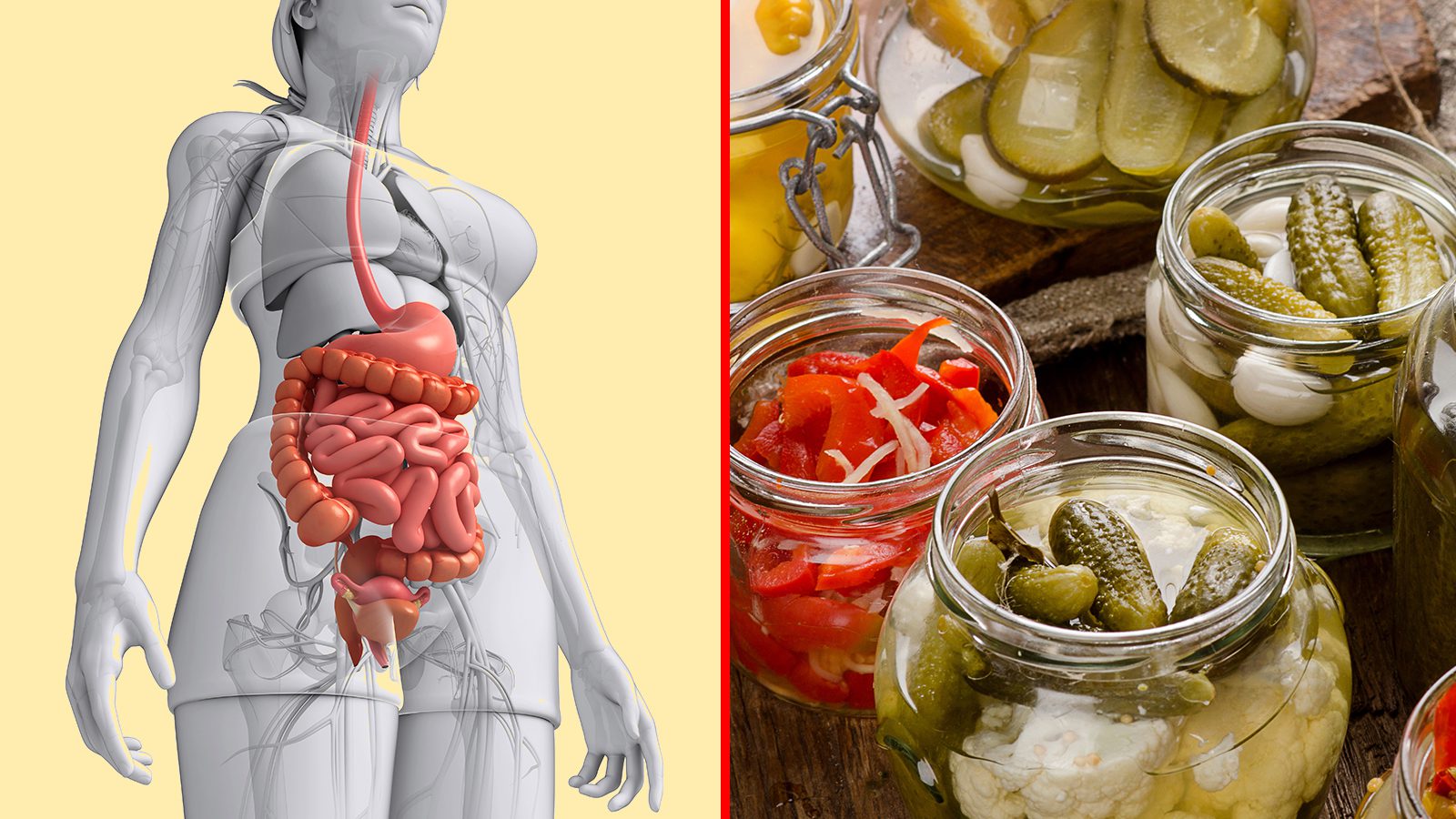Cultivating gut health ensures that your body can properly absorb and assimilate nutrients from food. You might often hear about fiber, but it takes more than that alone.
Your gut, also known as your gastrointestinal system (GI), helps digest food and extracts essential nutrients to use as fuel for the body.
When the digestive system functions optimally, you will have consistent energy levels and regular bowel movements. Food also digests more efficiently with minimal gas and bloating. However, digestion becomes sluggish and sometimes painful when you have unhealthy gut bacteria. You may notice more discomfort and irregularity with bowel movements.
Whether or not you have a healthy gut microbiome boils down to the diversity of bacteria populating the digestive system. In other words, the more diverse your microbiome, the healthier your GI system will be.
Tens of trillions of microorganisms, including bacteria, fungi, and viruses, reside in our digestive systems. Most of these microbes live in the large intestine, while only about 10,000 populate the small intestine. Humans have similar bacteria in approximately one-third of their gut microbiome. The remaining microbes differ from person to person based on genetics and environmental factors.
We inherit most of our gut bacteria from our parents. However, the remaining 10% of our gut microbiome depends on our diet and lifestyle factors, such as smoking status and physical activity levels. Even though we can only change a small percentage of our microbiome, it’s encouraging to know we can positively influence our gut health.
How Gut Health Affects Overall Well-being
So, how does our microbiome impact our health? Believe it or not, our gut health plays a role in almost every function in the body. In addition to digesting and assimilating nutrients from our food, the gut houses 70% of our entire immune system. Microbes communicate with immune cells and influence the body’s response to threats like infections. Therefore, if we want to improve our health, it all begins in the gut.
Gut health shapes our physical and psychological health in numerous ways. Our microbiome controls these aspects of health, among many others:
- Weight control. Studies show that having an imbalance of healthy and unhealthy gut microbes, or gut dysbiosis, can cause weight gain.
- Brain health. Emerging research discovered a link between gut health and the central nervous system, which impacts brain functioning. Most of our neurotransmitters, such as serotonin and dopamine, reside in the gut rather than the brain. Since millions of nerves connect these two vital organs, it’s easy to see how gut health influences mental well-being. In fact, many studies have found that those with psychological disorders have different gut bacteria compared to healthy people.
- Heart health. The gut microbiome promotes optimal levels of HDL cholesterol and triglycerides. Certain unhealthy bacteria convert nutrients found in red meat and other animal products to TMAO, a chemical that contributes to clogged arteries. This molecule can cause life-threatening conditions such as heart attacks or strokes. However, other healthy species found in probiotics, such as Lactobacilli, may reduce LDL cholesterol.
Gut health might sound complicated, but anyone can improve their digestive system by following the fundamental pillars of health. For example, nutrient-dense foods and positive habits can naturally add beneficial bacteria to your microbiome.
How to Boost Gut Health In Just Thirty Minutes a Day
Below, we’ll give you a few simple tips on how to restore your gut bacteria quickly.
1. Eat a Balanced, Diverse Diet With Fiber.
The microbiome thrives on an assortment of fresh foods containing plenty of fiber. Fiber-rich foods such as sweet potatoes, legumes, beans, whole grains, fruits, and vegetables promote the growth of gut-benefiting bacteria like Bifidobacteria.
2. Include Fermented, Probiotic Foods in Your Diet.
Fermented foods such as sauerkraut, kefir, kimchi, kombucha, and yogurt have an abundance of healthy bacteria, particularly Lactobacilli. This bacteria can alleviate gastrointestinal conditions like diarrhea, constipation, and inflammatory bowel disease.
3. Minimize Sugar and Artificial Sweeteners.
Some evidence suggests that artificial sweeteners such as aspartame cause high blood sugar. They trigger the growth of harmful bacteria like Enterobacteriaceae in the microbiome, resulting in elevated insulin levels. Regular sugar also creates an imbalance between good and bad gut bacteria. One study on mice found that a high-sugar diet made them more vulnerable to obesity and other metabolic diseases.
4. Eat More Prebiotics to Support Gut Health.
Probiotics refer to bacteria, while prebiotics are the undigestible carbohydrates they eat. Prebiotic-rich foods also have abundant fiber and include artichokes, onions, whole grains, apples, bananas, and asparagus.
5. Consume Plenty of Whole Grains.
Whole grains have tons of fiber and can improve gut health by increasing Bifidobacteria, an essential species for reducing inflammation. Whole grains also contain beneficial carbohydrates called beta-glucan, aiding weight loss and reducing overall disease risk
6. Consider Following a Vegan or Vegetarian Diet.
One study found that vegetarian diets may help reduce levels of unhealthy bacteria, such as E. coli, inflammation, and cholesterol.
7. Eat More Foods With Polyphenols.
Polyphenols are potent antioxidants in foods and beverages like green tea, coffee, dark chocolate, whole grains, and olive oil. They promote gut health because beneficial bacteria break them down, encouraging the growth of more gut-friendly organisms
8. Take Antibiotics Sparingly to Keep Good Gut Health.
While antibiotics have their place in modern medicine, they can also wreak havoc on gut health. Unfortunately, they kill both good and bad microbes, and healthy bacteria may not reemerge for years. Since antibiotics cause gut dysbiosis, they may also contribute to weight gain and immune suppression. Therefore, only take antibiotics when necessary.
9. Limit Alcohol Consumption.
While moderate red wine consumption can improve gut health due to polyphenol content, most alcohol negatively impacts digestion. Excessive alcohol intake can cause gastritis, heartburn, ulcers, bacterial infections, and other unpleasant conditions. Research also shows that alcohol can contribute to intestinal inflammation, which alters the microbiome.
10. Exercise Regularly.
Any activity can protect your health, even if you only have time to walk around your neighborhood. A 2014 study found that athletes had significantly more diverse gut microbiota than sedentary adults. Aim for 150 minutes of moderate to intense physical activity each week, including at least two days of weight training.
Final Thoughts on Ways to Increase Beneficial Gut Health
Scientists have only begun to understand the complexity and function of the microbiome. Research shows that gut health impacts every facet of well-being, from heart health to blood sugar control. While genetics primarily determines our gut bacteria, we can alter our microbiome by following the pillars of health. Eating plenty of fresh, whole foods and fiber, exercising regularly, and limiting alcohol consumption can improve digestive health.

















 Community
Community

